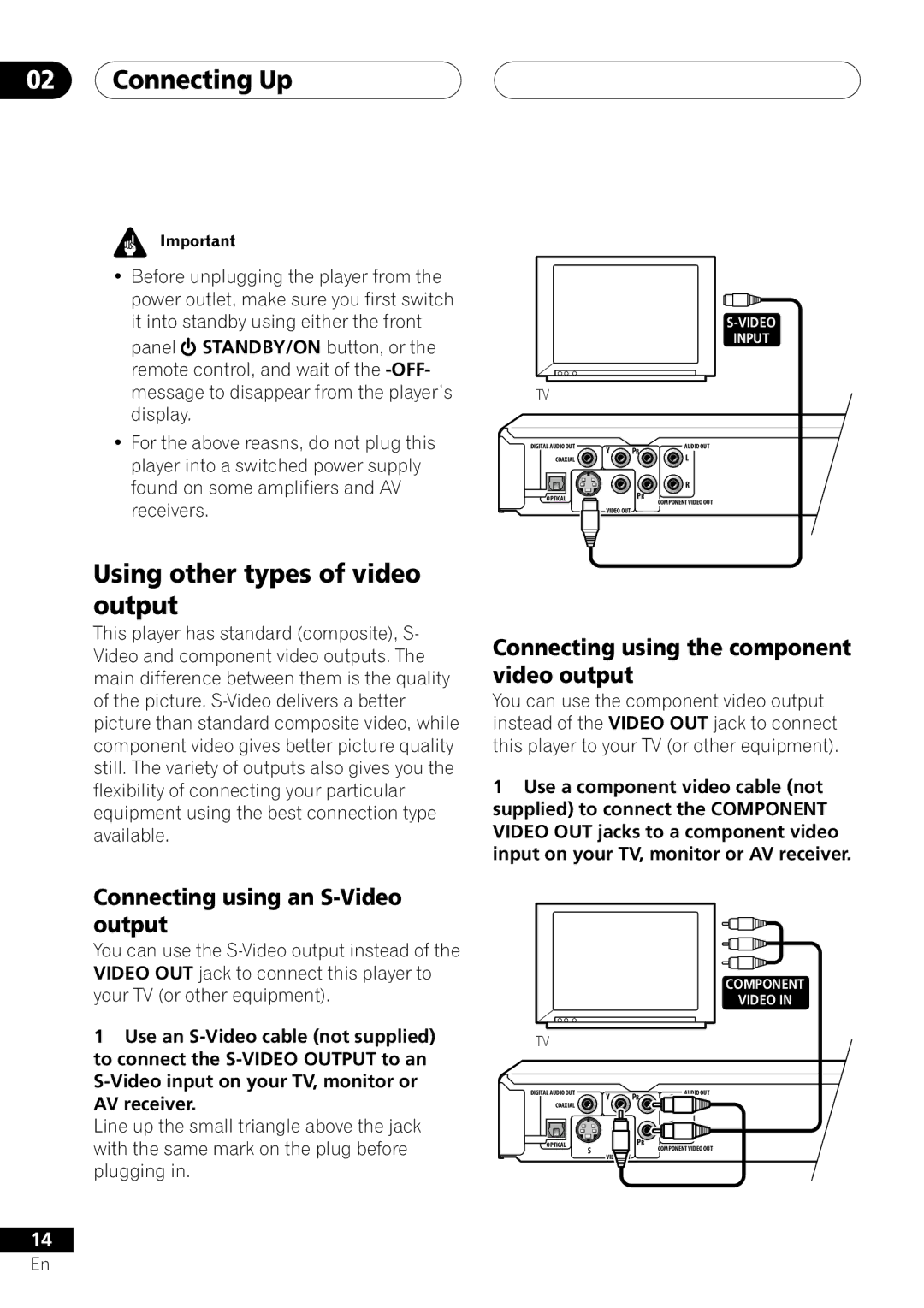
02Connecting Up
•Before unplugging the player from the power outlet, make sure you first switch it into standby using either the front
panel ![]() STANDBY/ON button, or the remote control, and wait of the
STANDBY/ON button, or the remote control, and wait of the
•For the above reasns, do not plug this player into a switched power supply found on some amplifiers and AV receivers.
INPUT
TV
DIGITAL AUDIO OUT | Y | AUDIO OUT |
| PB | |
COAXIAL |
| L |
|
| R |
OPTICAL | S | PR |
| COMPONENT VIDEO OUT |
VIDEO OUT
Using other types of video output
This player has standard (composite), S- Video and component video outputs. The main difference between them is the quality of the picture.
Connecting using an S-Video output
You can use the
1Use an
Line up the small triangle above the jack with the same mark on the plug before plugging in.
14
En
Connecting using the component video output
You can use the component video output instead of the VIDEO OUT jack to connect this player to your TV (or other equipment).
1Use a component video cable (not supplied) to connect the COMPONENT VIDEO OUT jacks to a component video input on your TV, monitor or AV receiver.
COMPONENT
VIDEO IN
TV
DIGITAL AUDIO OUT | Y | AUDIO OUT |
| PB | |
COAXIAL |
|
|
OPTICAL |
| PR |
| S | COMPONENT VIDEO OUT |
| VIDEO OUT |
|
